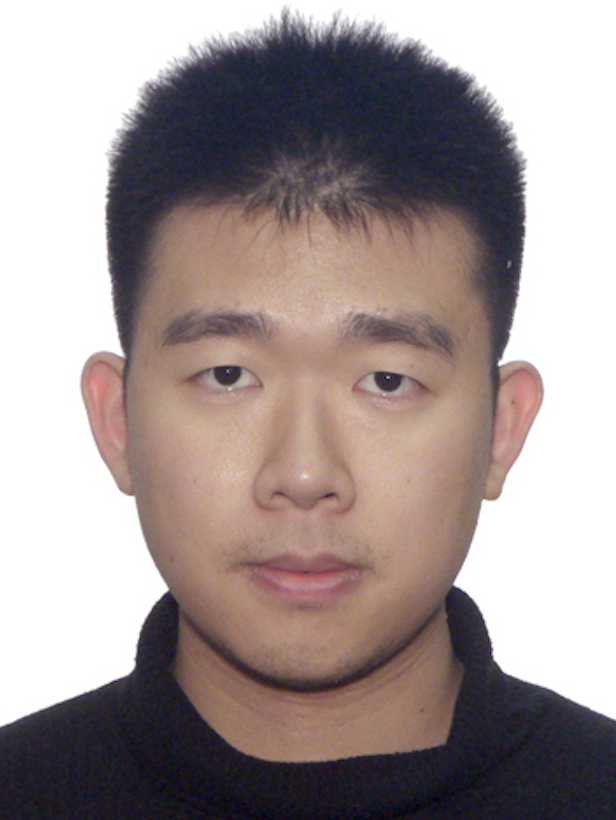Jianhong Wang’s Academic Personal Website
Ph.D. Thesis
My Ph.D. thesis titled Shapley Value Based Multi-Agent Reinforcement Learning: Theory, Method and Its Application to Energy Network is available online.
Short Bio
I am a Senior Research Associate in INFORMED-AI Hub, working with Prof Jonathan Lawry at University of Bristol, and a member of the European Lab for Learning and Intelligent Systems (ELLIS). Earlier, I was a Postdoctoral Research Associate at University of Manchester, UK, working with Prof Samuel Kaski.
I obtained my Ph.D. degree in Electrical and Electronic Engineering Research from Imperial College London, UK, in 2024, under supervision of Dr Yunjie Gu, Prof Tim C. Green and Prof Tae-Kyun Kim. Before that, I obtained my M.Res. degree in Web Science and Big Data Analytics, from University College London (UCL), UK, with distinction, in 2018, under supervision of Prof Jun Wang, as well as my M.Sc. degree in Computing (Machine Learning), from Imperial College London, UK, with merit, in 2017, under supervision of Prof Björn Schuller for the master project. Earlier, I obtained my B.Eng. degree in Computer Science and Electronic Engineering, from University of Liverpool, UK, with the first-class honours degree, in 2016, under supervision of Prof Danushka Bollegala and Prof Karl Tuyls for the final year project.
Research Interests
My primary research interests revolve around Multi-Agent Reinforcement Learning, Robust Reinforcement Learning and Ad Hoc Teamwork. About Multi-Agent Reinforcement Learning and Ad Hoc Teamwork, my emphasis lies in designing algorithms through the lens of Cooperative Game Theory. I firmly believe that integrating the fundamental structures from Game Theory into the development of learning algorithms can shed light on interpretability, transparency and reliability for contemporary learning-based Multi-Agent Systems. Beyond theoretical endeavors, I am passionate about the practical applications of Machine Learning algorithms (particularly Multi-Agent Reinforcement Learning) to Autonomous Systems (e.g. Smart Grids, Robotics, Dialogue Systems, etc.).
Academic Activities
- 05/08/2025: Organized a workshop called The 2nd Coordination and Cooperation in Multi-Agent Reinforcement Learning at Reinforcement Learning Conference 2025. This workshop aims to accelerate the advancement of cooperative and coordinated multi-agent reinforcement learning in both theory and real-world applications (e.g. swarm robotics, traffic management and smart grids). To achieve the goal, the agenda is constituted of paper submissions, invited talks and panel discussions.
- 18/12/2024: Organized a workshop called Multi-Agent Reinforcement Learning Workshop (MARL) at Distributed Artificial Intelligence 2024 (DAI 2024). This workshop delves into the dynamic and complex world of multi-agent systems operating in challenging environments, where solutions may involve multi-agent reinforcement learning or other advanced techniques. Participants are invited to share case studies and real-world applications, showcasing how MAS can drive innovation in areas like embodied agents, autonomous vehicles, robotics, and more.
- 17/09/2024: Started working on the national project as a team member, EPSRC AI hubs: Information theory for distributed AI (INFORMED-AI) (EP/Y028732/1).
- 09/08/2024: Organized a workshop called Coordination and Cooperation in Multi-Agent Reinforcement Learning (CoCoMARL) at the Reinforcement Learning Conference 2024 (RLC 2024). The aim of this workshop is to promote the advancement of cooperative and coordinated multi-agent reinforcement learning in both theory and real-world applications (e.g. swarm robotics, traffic management, etc.). To achieve the goal, this workshop is constituted of paper submissions, invited talks and panel discussions.
- 07/02/2023: Started working on the national project as a team member, Turing AI World-Leading Researcher Fellowship: Human-AI Research Teams - Steering AI in Experimental Design and Decision-Making (EP/W002973/1).
Personal Updates
- 19/12/2024: One paper accepted at AAMAS 2025
- 25/09/2024: One paper accepted at NeurIPS 2024
- 17/09/2024: Joined University of Bristol as a Senior Research Associate
- 02/05/2024: One paper accepted at ICML 2024
- 13/02/2024: One paper accepted at ICAPS 2024
- 10/12/2023: One paper accepted at AAAI 2024
Selected Publications
- Open Ad Hoc Teamwork with Cooperative Game Theory, accepted at ICML 2024
- Robust Reinforcement Learning in Continuous Control Tasks with Uncertainty Set Regularization, accepted at CoRL 2023
- SHAQ: Incorporating Shapley Value Theory into Multi-Agent Q-Learning, accepted at NeurIPS 2022
- Multi-Agent Reinforcement Learning for Active Voltage Control on Power Distribution Networks, accepted at NeurIPS 2021
- Modelling Hierarchical Structure between Dialogue Policy and Natural Language Generator with Option Framework for Task-Oriented Dialogue System, accepted at ICLR 2021
- Shapley Q-value: A Local Reward Approach to Solve Global Reward Games, accepted at AAAI 2020 (Oral)
